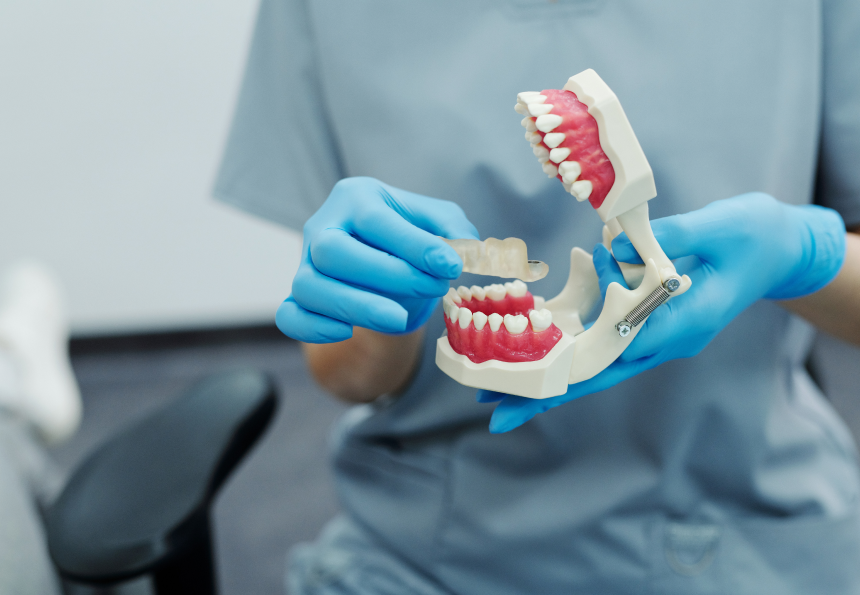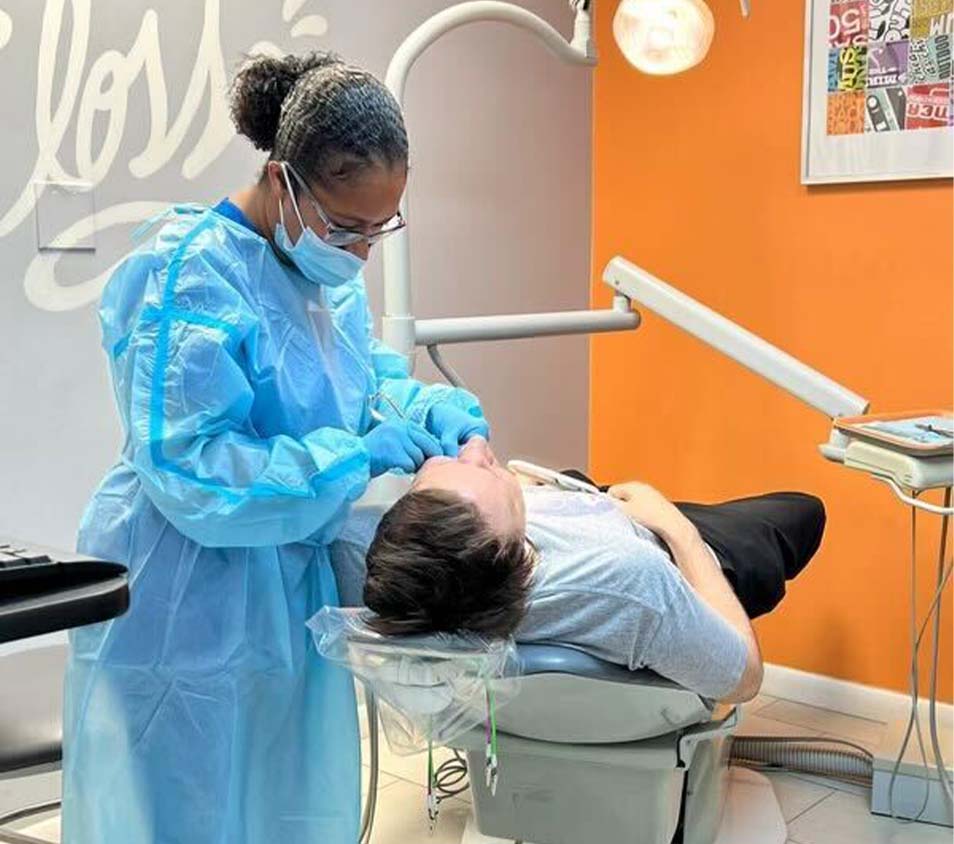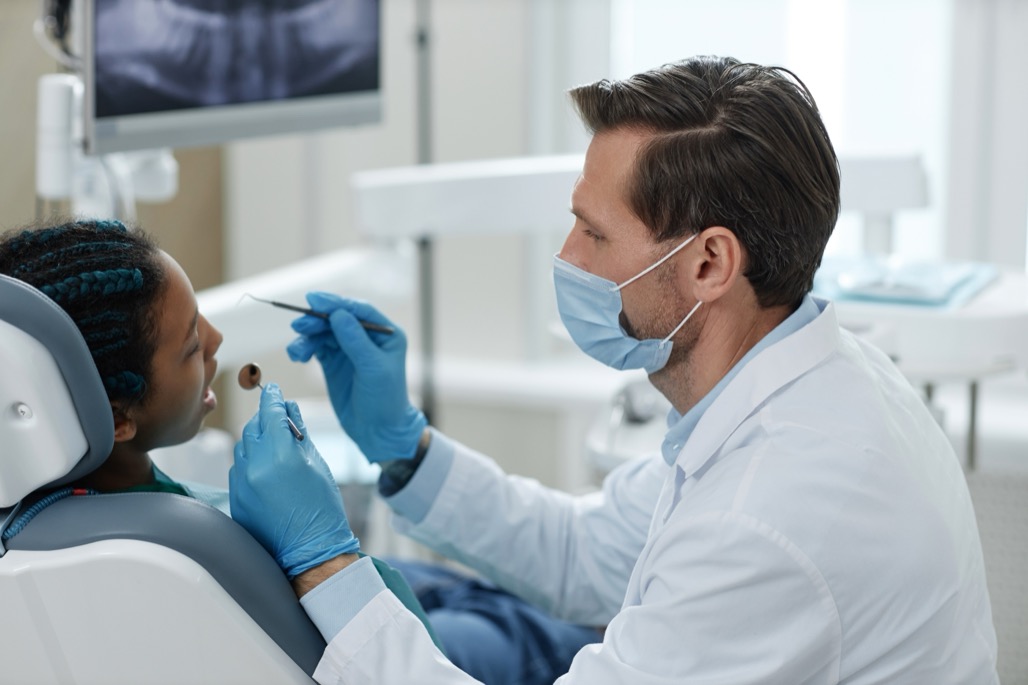The Benefits of Picking a Same Day Dental Crown for Rapid Fixing
The Benefits of Picking a Same Day Dental Crown for Rapid Fixing
Blog Article
Vital Dental Care Procedures for Maintaining Healthy Teeth and Gums
Keeping ideal oral wellness is important for overall well-being, and understanding essential dental treatment treatments is the initial step toward achieving this goal. Normal dental examinations and professional cleanings play a crucial duty in the very early discovery of prospective concerns, while daily methods such as brushing and flossing are basic for combating plaque and food bits.
Regular Oral Examinations
Routine dental exams are essential for preserving optimal dental wellness and stopping possible concerns. These appointments generally occur every 6 months and offer several purposes, including the early discovery of dental problems such as dental caries, gum tissue illness, and oral cancer cells. By recognizing these concerns at their beginning, people can benefit from less intrusive treatments and enhanced results.

Moreover, normal check-ups provide a possibility for oral professionals to supply tailored recommendations on oral health techniques, nutritional selections, and way of life alterations that can boost general dental health and wellness. Establishing a regimen of regular check-ups cultivates a positive technique to dental treatment, empowering individuals to take fee of their dental wellness and ultimately resulting in a brighter, much healthier smile. Neglecting these vital check outs can result in much more severe problems, emphasizing their importance in preventive oral treatment.

Expert Cleansings
A crucial part of preserving oral health and wellness is the specialist cleaning carried out by an oral hygienist. These cleansings, usually suggested every six months, are essential for the avoidance of oral concerns such as cavities and gum disease. Same Day Dental Crown. During a specialist cleaning, the hygienist uses specialized devices to remove plaque and tartar accumulation from the teeth and along the gum line, areas that routine cleaning may miss
Following this, the hygienist makes use of a scaler to meticulously scrape away hardened plaque. The hygienist may apply a fluoride therapy to strengthen the teeth and provide extra security versus decay.
Expert cleansings not just enhance the visual appeals of your smile yet additionally considerably contribute to overall dental health and wellness. They permit very early discovery of possible troubles, making it possible for timely intervention. By focusing on these cleanings, individuals can guarantee that their oral hygiene routine is enhanced by expert care, eventually causing healthier teeth and periodontals.
Daily Brushing Methods
Effective daily brushing techniques are vital for preserving ideal oral health and wellness. Combing your teeth a minimum of twice a day, ideally in the early morning and before going to bed, is necessary for getting rid of plaque and avoiding dental caries. Pick a soft-bristled tooth brush that fits easily in your hand and enables very easy accessibility to all locations of your mouth.
When brushing, hold the tooth brush at a 45-degree angle to your gums. This position aids to cleanse not only the teeth yet additionally the gumline, where plaque can collect. Usage mild, round movements instead of hostile back-and-forth strokes, which can harm the gums and enamel. See to it to clean for at least 2 minutes, investing equivalent time on each quadrant of your mouth.
Do not forget to comb the inner surface areas of your teeth, as well as your tongue, to get rid of bacteria and freshen your breath. Developing a regular cleaning routine will substantially add to the lasting health and wellness of your teeth and gum tissues.
Effective Flossing Techniques
Flossing is a vital part of an extensive oral hygiene routine, playing a crucial function in eliminating food bits and plaque from locations that a tooth brush can not reach. Reliable flossing methods can substantially boost the health of your teeth and gum tissues, preventing cavities and gum disease.
To begin, utilize around 18 inches of oral floss, winding completions around your middle fingers, enabling far better control. Hold the directory floss snugly in between your thumbs and forefinger, gently directing it in between your teeth with a sawing motion. Avoid breaking the floss, as this can trigger gum damages.
As soon as the floss gets to the gum tissue line, curve it into a C shape against one tooth and slide it underneath the gum line carefully, making sure to clean up both sides of the tooth. Repeat this procedure for every tooth, utilizing a clean section of floss as you relocate from one tooth to the following.
It is advisable to floss a minimum of once daily, ideally before brushing, to maximize plaque removal. Including reliable flossing techniques into your oral hygiene regimen will certainly contribute to total dental health, making it an essential technique for maintaining healthy and balanced teeth and periodontals.
Nutritional Considerations for Oral Health
Countless studies demonstrate that dietary considerations play a critical function in preserving oral wellness and stopping oral problems. A well-balanced diet regimen rich in crucial nutrients is basic for the advancement and maintenance of healthy and balanced teeth and gums. Trick minerals and vitamins, such as phosphorus, vitamin, and calcium D, contribute dramatically to the stamina of tooth enamel and the total stability of the oral cavity.
Foods high in anti-oxidants, like fruits and vegetables, improve gum health by lowering inflammation and combating oxidative stress and anxiety. Appropriate hydration is vital; water not just helps in the manufacturing of saliva, which neutralizes acids and washes away food bits, yet also aids in maintaining a well balanced dental microbiome. Emergency Dentist DC.
Conversely, excessive usage of acidic and sweet foods can lead to tooth degeneration and erosion. Limiting these foods, together with exercising good oral health, is essential for dental health. Furthermore, integrating foods high in fiber can boost saliva manufacturing, which is valuable for oral health. Therefore, an alternative method that includes mindful nutritional options can considerably add to the avoidance of oral issues and the promo of overall dental health.
Final Thought

These visits typically occur every six months and serve several objectives, consisting of the very early discovery of oral issues such as cavities, gum disease, and dental cancer cells.Throughout an exam, an oral specialist performs a complete examination of the teeth, gums, and surrounding dental frameworks.Furthermore, normal exams give a possibility for dental specialists to use tailored recommendations on oral hygiene practices, dietary selections, and way of living modifications that can boost total oral health.In summary, preserving dig this healthy teeth and gums demands adherence to vital dental care procedures. Normal expert cleanings and dental examinations help with very this content early detection of oral problems and the elimination of plaque and tartar, respectively.
Report this page